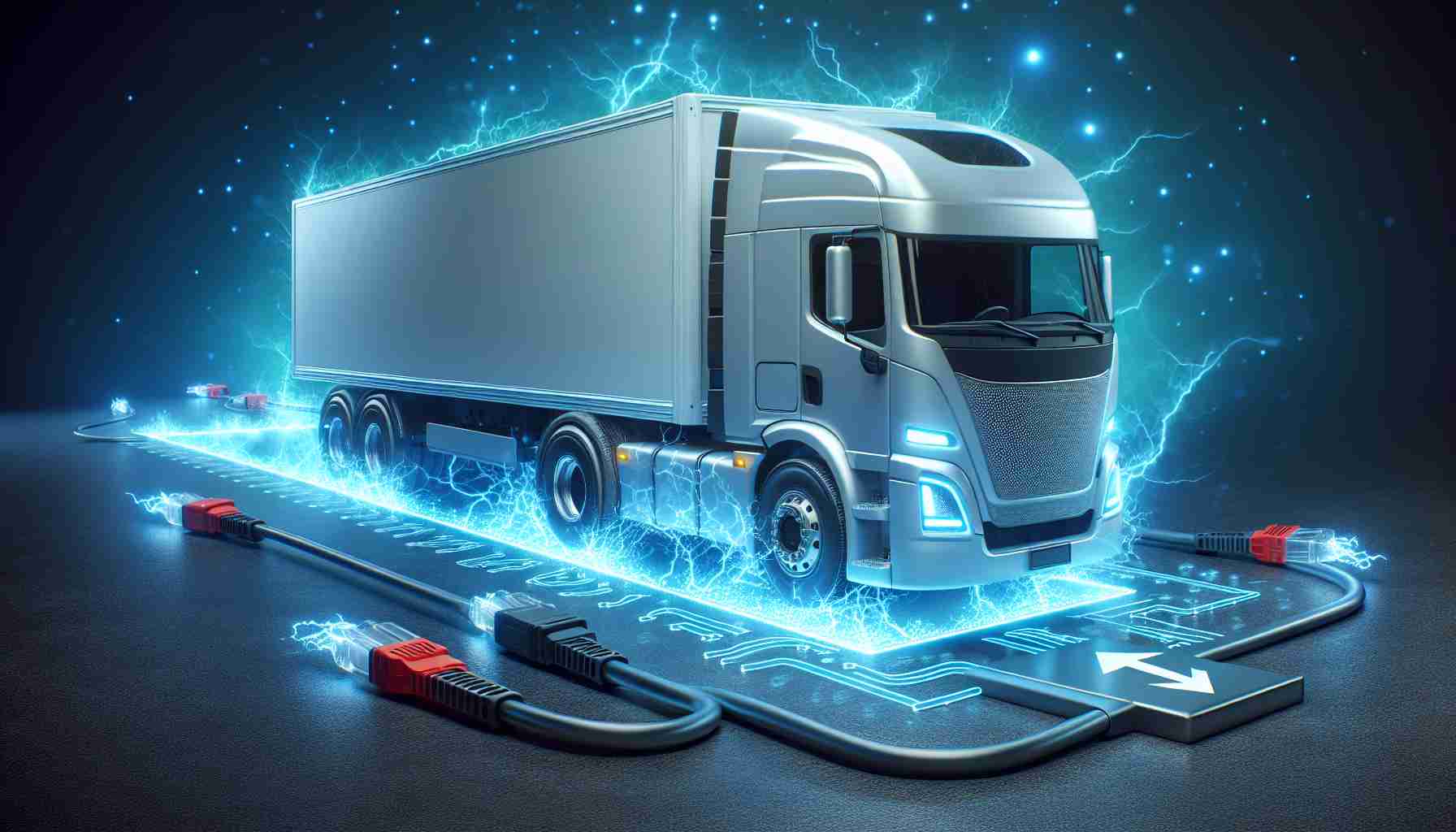
- Nikola faces imminent bankruptcy, raising concerns about the future of its technology.
- The company is consulting with Pillsbury Winthrop Shaw Pittman for strategic options, including a potential sale.
- Nikola has incurred significant losses, producing vehicles that cost hundreds of thousands more than their worth.
- The electric truck market shows potential, but Nikola’s financial struggles may impact the industry’s outlook.
- This situation underscores the risks associated with pioneering technological advancements.
In a startling turn of events, electric truck manufacturer Nikola is on the brink of bankruptcy, igniting concerns about the future of its groundbreaking technology. Based in Phoenix, Arizona, this ambitious company has been battling severe financial challenges, struggling to keep its wheels turning amidst a sea of red ink.
As Nikola’s cash reserves dwindle, insiders reveal that the company is currently consulting with the prestigious law firm Pillsbury Winthrop Shaw Pittman. They are reportedly exploring various options, including a potential sale or a major restructuring through bankruptcy. This strategy highlights the shaky ground beneath the feet of a company once hailed as a leader in the electric vehicle sector.
The reality is stark: Nikola has been losing hundreds of thousands of dollars for every vehicle it produces, a financial drain that raises alarms about its long-term viability. While the electric truck market is brimming with potential, Nikola’s fight for survival casts a shadow over its ambitions and the broader electric vehicle industry.
The key takeaway here is a reminder of the inherent risks involved in pioneering industries. As Nikola navigates this turbulent storm, the future of its innovations hangs in the balance, leaving consumers and investors anxiously awaiting what comes next. Will Nikola rise from the ashes or fade into obscurity? Only time will tell, but one thing is certain: the stakes have never been higher in the electric vehicle revolution.
Will Nikola Overcome Its Bankruptcy Fears? Here’s What You Need to Know!
The Current State of Nikola
Nikola Corporation, a company once considered a potential leader in the electric truck market, finds itself in a precarious situation as it contends with severe financial difficulties. Reports indicate that Nikola is seeking legal counsel to explore restructuring options, including a possible bankruptcy filing. This move raises significant questions regarding the future of its innovative technologies and the broader implications for the electric vehicle (EV) industry.
New Information on Nikola’s Challenges
As the company grapples with declining cash reserves, a few key aspects emerge that illuminate the ongoing crisis:
– Market Forecasts: Industry analysts predict that the electric vehicle market will experience significant growth, ballooning to an estimated $800 billion by 2027. However, for Nikola, this promise may be overshadowed by its current financial instability.
– Pros and Cons of Nikola’s Technology:
– Pros: Nikola’s hydrogen and battery-electric trucks are considered innovative alternatives for sustainable freight transport. The company’s Zero and Tre models aim to reduce emissions significantly in the trucking industry.
– Cons: The high production costs and supply chain issues faced by Nikola have rendered its vehicles unprofitable, putting its competitive edge at risk.
– Sustainability Insights: Nikola’s commitment to hydrogen fuel cells poses both innovation and risk. While hydrogen technology could pave the way for sustainable haulage, the infrastructure for hydrogen filling stations remains underdeveloped, posing a significant barrier to consumer adoption.
Frequently Asked Questions
1. What led to Nikola’s financial struggles?
Nikola has faced numerous challenges such as production delays, supply chain disruptions, high manufacturing costs, and skepticism from investors after a series of controversies regarding its technology claims.
2. What does the potential bankruptcy mean for Nikola’s technology?
If Nikola files for bankruptcy, it may lead to restructuring, which could either involve selling its technology to another company or revamping its operational strategies. The outcome will likely depend on how well it can convince stakeholders of its value amid its financial troubles.
3. How will Nikola’s situation affect the electric vehicle market?
Nikola’s struggles serve as a cautionary tale for other startups in the electric vehicle sector. Should it fail, it could cause a ripple effect, eroding investor confidence and likely prompting stricter evaluations of other new players in an already volatile market.
Looking Ahead
As Nikola continues to navigate these tumultuous waters, the effects of their decisions will not only determine the company’s fate but also impact the trajectory of innovation in the electric vehicle market. Stakeholders will be watching closely to see if Nikola can adapt and thrive in an industry that is rapidly evolving.
For further details, visit Nikola Motor.



